Contents
Apples are loved and grown in many countries of the world, but in Our Country there are unique varieties, which have no analogues in any country in the world. An example is the candy apple variety, the very name of which already speaks a lot about itself. The taste of the fruits of this variety is very popular not only for children, but also for adults with a sweet tooth. To some, it resembles pineapple, to others, ripe bananas, and most agree that these apples can replace sweets.
The Candy apple tree is a very curious variety that has many features, and is far from known to everyone due to the fact that it has not been zoned for industrial use. But those who have ever encountered this variety are unlikely to change it, despite the fact that it also has some significant drawbacks.
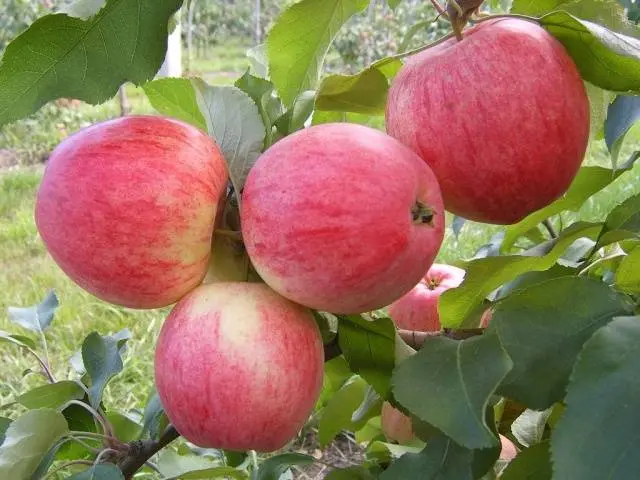
History of occurrence
Back in the 40s of the XX century in Michurinsk at the Institute of Horticulture, this variety was bred by a group of scientists Z. Ivanova, M. Maksimov and V. Zayets under the guidance of the famous biologist-breeder S. I. Isaev.
It was obtained by crossing old varieties of folk selection Papirovka and Korobovka. Although they have been known for at least several centuries, they still continue to be promising varieties for amateur gardens. Already after the war, in the early 70s, state tests of the Candy variety began. But due to some difficulties in the formation and maintenance of the crown, and, most importantly, short-term storage and unsuitability for transportation of the fruits of this apple tree, the variety was never zoned. At the same time, many amateur gardeners are happy to grow the Candy apple tree on their plots and love it for its unpretentiousness and amazing, incomparable taste of apples.
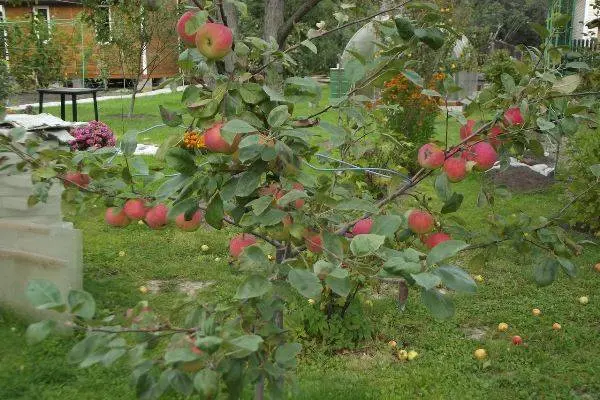
As a result, an apple tree of the Candy variety is not at all a rarity in many gardens of Belarus, Ukraine, the European part of Our Country, but it is also found even beyond the Urals, in some regions of Siberia. There are several synonymous names for this variety: Summer Ranet or Candy Ranet, and among the people these apple trees are often called simply Candy.
Variety description
The candy apple trees themselves are tall in nature. In the first three years of life, they grow and develop very quickly, and reach a height of three meters. Then the growth rate slows down somewhat and the total height of the tree in adulthood does not exceed 5 meters.
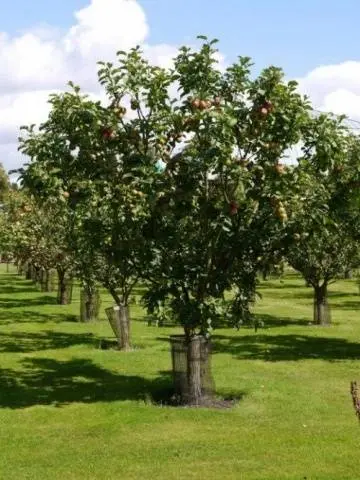
But at the same time, the height of the tree depends entirely on the stock on which this variety is grown. In modern times of love for compact and small trees, apple trees of this variety are often grown on a dwarf rootstock. Of course, in this case, the height of the tree can quite fit into 1,7-1,8 meters, and most importantly, it will be able to bear fruit on a dwarf rootstock literally in the second year after planting. But novice gardeners need to understand that trees growing on dwarf rootstocks have a much more capricious character and require more careful care than ordinary ones. Due to the small root system, they are very unstable, therefore, they require mandatory, strong support, regular watering, fertilizing and weed control.
In this case, the tree is unlikely to exceed the mark of three meters, and it will also be able to bring the first fruits quite early – 2-3 years after planting, but the root system will be somewhat more stable, although the apple tree will still need increased attention from the gardener.
Apple trees of the Candy variety are distinguished by a powerful and spreading crown in adulthood. But in the first years of life, the branches grow mainly up and at a slight angle from the trunk, so the crown has a narrowed shape. Pruning plays an important role in the life of the Candy apple tree – it allows you to form a beautiful, oval-shaped crown, and prevent branches from thickening, which can lead to many diseases. In addition, regular pruning contributes to annual fruiting and has a positive effect on the size of the fruit – they do not shrink with age.
The shoots are flexible and durable, able to bear the weight of a bountiful harvest and not break. The branches are distinguished by an abundance of foliage. The leaves themselves are leathery, strong, dark green, medium-large in size.
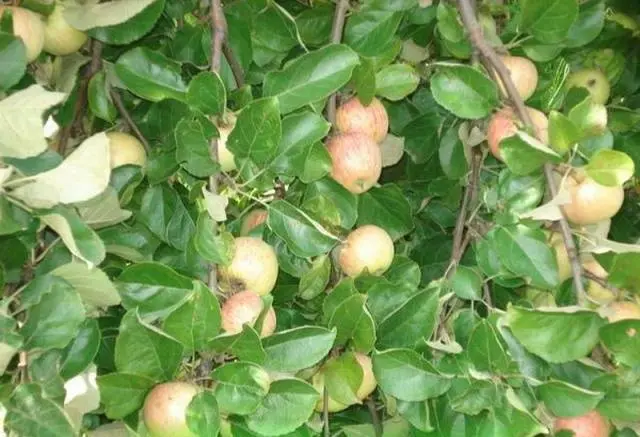
The Candy apple tree blooms in small white-pink inflorescences in May. In terms of ripening, the variety belongs to summer, depending on the amount of heat and sunlight, apples can be picked one of the first in the summer season, already at the end of July or at the beginning of August. Moreover, like some summer varieties, the Candy apple tree has such a feature – its fruits can be eaten even at the stage of the so-called technical maturity, when they have already reached the sizes set for the variety, but have not yet been painted in the required color. At this stage of ripening, they are already very tasty and sweet, but at the same time they are still fresh and juicy.
As noted above, the period when an apple tree enters fruiting depends to a large extent on the rootstock. On ordinary vigorous rootstocks, the first fruits may appear only for 4-5 years of the tree’s life.
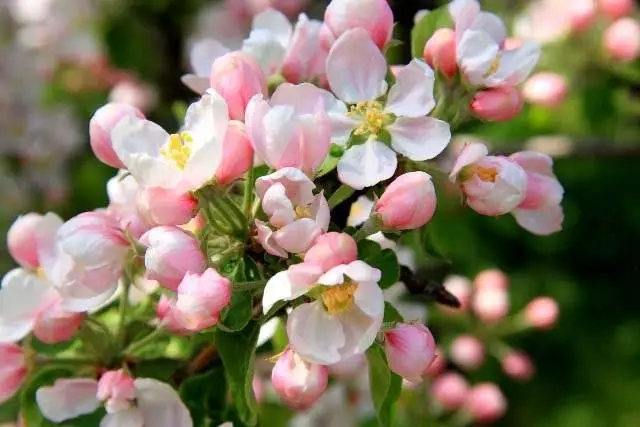
The Candy apple tree is a partially self-pollinating variety, therefore, for additional pollination and, as a result, a good harvest, it is desirable that apple trees with the same flowering periods grow near it.
Listed below are the main apple cultivars that may be the best pollinator cultivars for the Candy apple tree.
- Anise pink-striped;
- Melba;
- Glory to the Winners;
- Paping;
- Red early;
- Orlovim;
- Stark John Grimes;
- Golden Chinese;
- White;
- Yandykovskoye.
And in terms of productivity, the Candy apple tree can surprise an inexperienced gardener. Already at the age of five years, it can produce 40-50 kg of apples from one tree. For an adult ten-year-old tree, even 100 kg is not at all the limit of its yield.
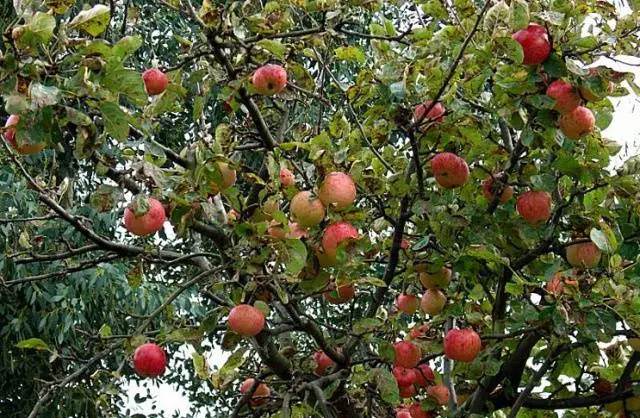
Frost resistance plays an important role in the description of the variety. The Candy apple tree can withstand up to -28 ° C, having average frost resistance, but a feature of this variety is the fact that even after the most severe winters the tree is able to recover, bloom and grow. The candy apple tree is also unpretentious to other conditions of detention, it can well resist various diseases and pests.
In rainy years, this can be a problem, so a preventive treatment with copper-containing antifungals is necessary.
Fruit Characteristics
The shape of candy apples is rounded with slight ribbing. Most apples grow the same shape and size. The mass of apples is usually small 70-80 grams, but when grown on a dwarf rootstock, the mass of fruits can increase up to 200 grams. The skin is smooth with very little waxy coating.
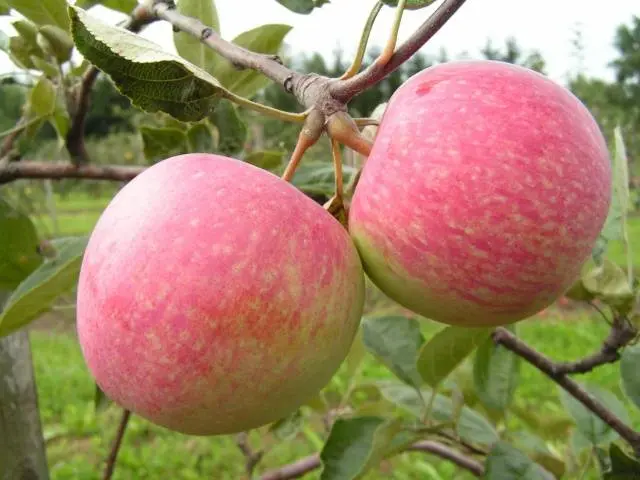
Apples also look very attractive. The main color of the apples is bright yellow, but with a sufficient amount of sunlight, a red-raspberry blush appears on the fruits in the form of bright strokes.
Thanks to their honey-candy taste, apples got their name. Despite the fact that experts rate the taste of apples at 4,0, in terms of sugar content, few varieties of apples can compare with Candy. The ratio of sugar to acid is 46. And pure sugar in apples contains more than 10%. For this reason, apples are ideal for making fruit wine or apple cider. Yes, and other blanks, such as jams, preserves, marmalades, from Candy apples are very popular. Since, in addition to the fact that they practically do not need to add sugar, they have an indescribable delicate aroma.
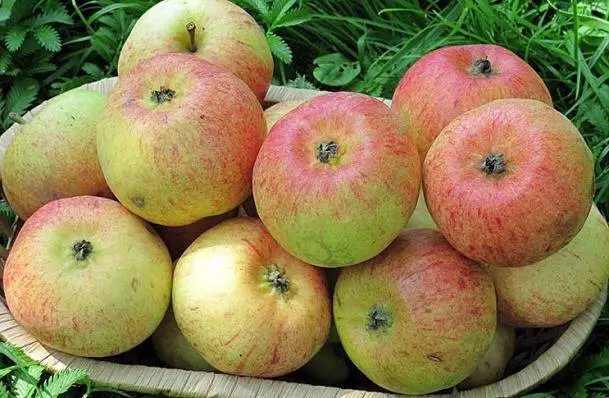
A special advantage of apples, among other characteristics, is that they hold tightly to their branches and therefore there is practically no carrion on the tree. By the way, it is necessary to pick apples either from the stairs, or with the help of a special fruit picker. Since shaking off the fruits is difficult and does not make any sense – they will not be stored at all.
In general, the shelf life of Candy apples is small – 2-3 weeks in a regular room, and up to 1,5 months – in the refrigerator.
Planting and care
Planting candy apple trees is no different from other apple trees. And in the care of this tree, it is necessary to pay special attention to only two procedures: pruning and processing against scab.
Pruning should be done annually in the spring before bud break and is equally important for young trees as well as old ones. Otherwise, the apple tree will bear fruit only after a year.
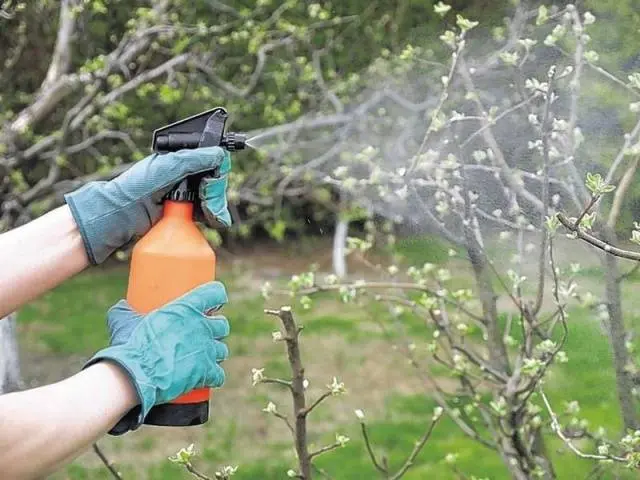
For the prevention of scab, it is important to carefully remove the foliage from under the trees every year, and in early spring to spray the crown of the tree with antifungal drugs.
Reviews of gardeners
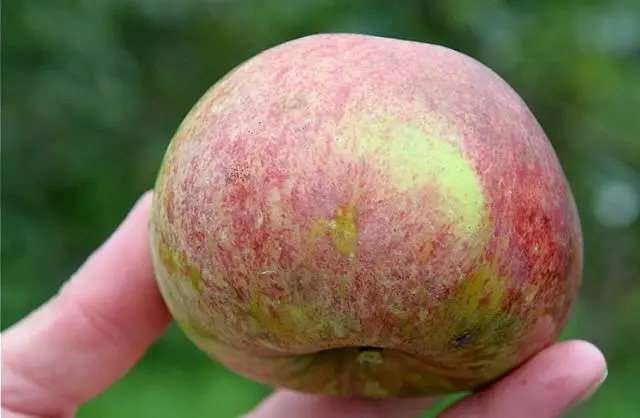
Reviews about the Candy apple tree, the description and photo of which are presented above, are mostly favorable. After all, this variety is ideal for home gardens, when fruiting is extended and apples can be gradually eaten directly from the tree, and, if necessary, make the necessary sweet preparations.
Conclusion
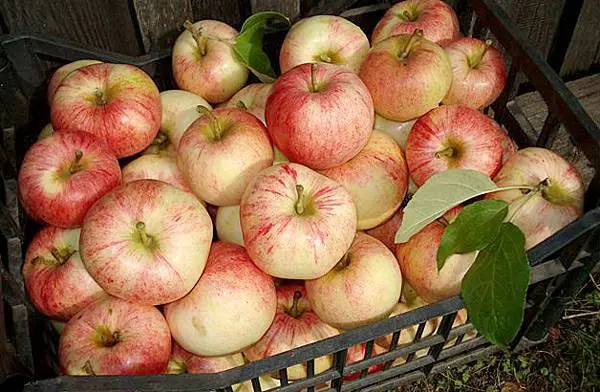
It is not in vain that the Candy apple tree serves as a continuation of the old varieties of folk selection. Despite some shortcomings, people’s love for her is unlikely to dry up, because in our cold climate she is a supplier of the sweetest and juiciest fruits that can compete with overseas delicacies.









